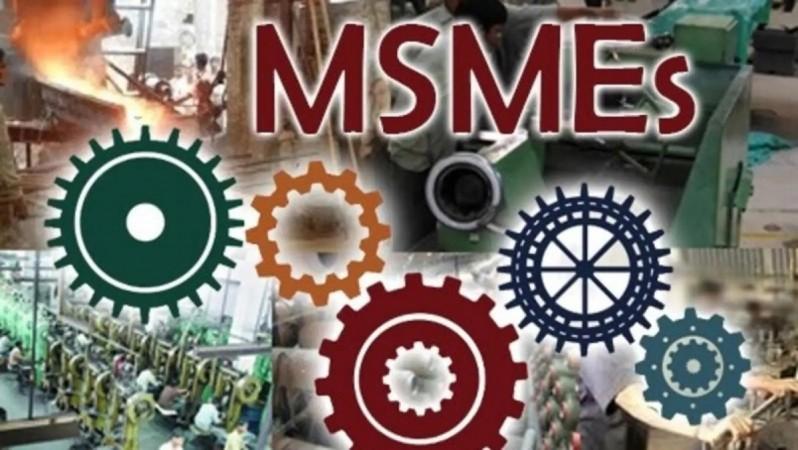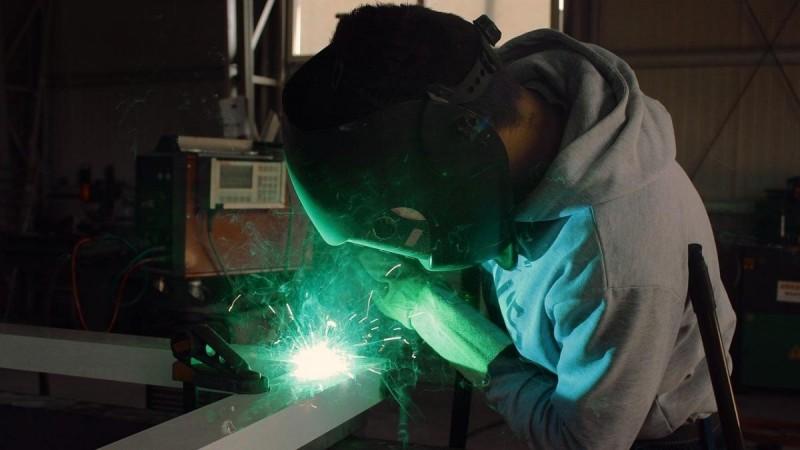
India's MSME sector is projected to generate over two lakh new jobs by 2025, according to a report by NLB Services. The sector contributes to over 33% of the GDP and drives 62% of the employment domestically.
The surge in digitisation and post-pandemic shift in the workforce are expected to drive demand for roles in various sectors. Government initiatives and global trends of digital transformation are expected to fuel the growth of the MSME sector.
India's Micro, Small, and Medium Enterprises (MSME) sector, a significant contributor to the country's economy, is projected to generate over two lakh new jobs by 2025, according to a report by NLB Services. This sector, which currently employs about 1.2 crore people, is expected to create job opportunities across various sectors, including services, manufacturing, e-commerce, logistics, and supply chain, in both urban and rural areas.
India, home to 633.9 lakh enterprises, has the fastest-growing cohort of MSMEs, generating mass-scale employment, particularly in tier 2 and 3 regions. Small businesses, which comprise 96 per cent of industrial units, are the second-largest employment generator in the country, said Sachin Alug, CEO, NLB Services.
The MSME ecosystem contributes to over 33 per cent of the GDP, driving 62 per cent of the employment on the domestic front. However, Alug pointed out that the average contribution of MSMEs in employment generation across other emerging economies stands at 77 per cent, indicating untapped potential that can be explored in India.

The surge in digitisation and the post-pandemic shift in the workforce are expected to drive the demand for roles in construction, manufacturing, transportation, and supply-chain. The majority of these new roles will emerge across states like Andhra Pradesh, Gujarat, Karnataka, Maharashtra, Tamil Nadu, and Telangana.
The report also highlighted the role of women in the MSME sector. Women-led enterprises constitute 20.44 per cent of micro-businesses, 5.26 per cent of small businesses, and 2.77 per cent of medium businesses. These enterprises have registered better growth in income compared to male-owned MSMEs. Over the next five years, we expect another 20-25 per cent surge in women-led MSMEs, which will further complement job creation, the report added.
The MSME sector's growth is not an isolated phenomenon. It is part of a broader trend of economic development and job creation. For instance, in July 2022, India launched three schemes under the banner 'Strengthening Pharmaceuticals Industry' (SPI) for strengthening MSMEs in the pharmaceutical sector. The states of Andhra Pradesh, Gujarat, Maharashtra, and Goa emerged as major pharmaceutical manufacturing clusters.
Moreover, the government's focus on skilling, deeptech, R&D, innovation, and digital infrastructure, as reflected in the Interim Budget 2024, is expected to fuel the growth of the MSME sector. The Skill India Mission has helped build a highly skilled workforce, and the Rs. 1 lakh crore corpus with interest-free loans for tech-savvy youth is expected to be a game-changer.

The growth of the MSME sector also aligns with the global trend of digital transformation. The integration of artificial intelligence (AI) applications in various sectors holds extraordinary potential to revolutionize industries. For instance, the use of computer vision systems in grain inspection, which uses advanced imaging techniques and machine learning algorithms, is becoming increasingly popular.
In conclusion, the Indian MSME sector's projected job creation by 2025 is a testament to its robust growth and its crucial role in the country's economy. The sector's potential remains untapped, and with the right policies and support, it can contribute significantly more to employment generation and economic development. The future of the MSME sector in India looks promising, with the potential to drive the country's economic growth and employment generation to new heights.

















